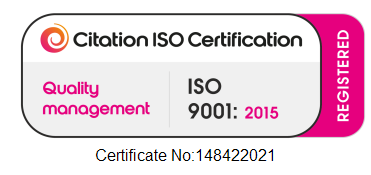Purpose-built smartphones for clinical trials offer significant advantages over standard consumer devices when it comes to collecting reliable patient data. If you're managing clinical research, you've likely wondered: "Are regular smartphones good enough for my trial?" The short answer is no – and here's why specialised devices make all the difference.
Why Data Integrity Is At Risk With Consumer Smartphones
When running clinical trials, data is everything. Your research outcomes, regulatory approvals, and ultimately patient care all depend on collecting accurate, consistent information. Unfortunately, standard consumer smartphones introduce several risks that can compromise your entire study.
Using everyday phones for clinical research creates these common headaches:
- Unpredictable updates – Consumer phones receive frequent OS updates that can change functionality mid-trial
- Security vulnerabilities – Standard devices lack the enhanced protection needed for sensitive patient data
- Battery limitations – Regular smartphones prioritise features over battery life, leading to potential data collection gaps
- App conflicts – Other applications can interfere with your research software, causing crashes or performance issues
- Participant distractions – Social media, games, and notifications can reduce compliance and focus
As research published in Contemporary Clinical Trials notes, "Digital technologies offer opportunities and solutions that can lead to reductions in cost, minimise complexity, and reduce burden" – but only when implemented with proper controls and purpose-built hardware.
5 Ways Purpose-Built Smartphones Enhance Clinical Trial Success
Medical grade mobile devices for research aren't just a luxury – they're increasingly becoming the standard for quality-focused clinical trials. Here's how purpose-built devices give your research the edge:
1. Controlled Operating Environment
- No unexpected updates during your trial
- Consistent experience across all participants
- Removal of unnecessary applications and features
- Stable performance throughout the study duration
2. Enhanced Security Features
- Advanced encryption for sensitive patient data
- Secure boot processes prevent tampering
- Comprehensive access controls
- GDPR and HIPAA compliance features built-in
3. Extended Battery Life
- Optimised power management for multi-day operation
- Reduced charging anxiety for participants
- Fewer missed assessments due to dead batteries
- Consistent performance throughout the day
4. Simplified User Experience
- Intuitive interfaces designed specifically for clinical research
- Reduced training requirements for participants
- Higher compliance rates due to ease of use
- Fewer support calls and technical issues
5. Regulatory Advantages
- Complete audit trails for all device interactions
- Consistent data collection across all participants
- Documentation ready for regulatory submissions
- Reduced validation burden compared to consumer devices
Recent research in the Journal of Medical Internet Research found that purpose-built devices can improve data completeness by up to 80% compared to consumer smartphones, with significantly fewer technical support issues.
Learn more about STK Life's purpose-built smartphones.
Purpose-Built vs Consumer Smartphones: The Clinical Research Showdown
When comparing custom devices vs consumer phones for clinical studies, the differences become clear. This table highlights why purpose-built options consistently outperform standard smartphones:
| Feature | Purpose-Built Smartphones | Consumer Smartphones |
| Operating System | Controlled, stable environment | Frequent updates that can disrupt studies |
| Battery Life | Optimised for 2-3 days of research use | Often requires daily charging |
| Security | Enhanced encryption and access controls | Variable security features |
| Interface | Simplified, research-focused | Complex, with many distractions |
| Support | Dedicated technical assistance | Limited or consumer-focused |
| Durability | Ruggedised options available (like STK Titan 5) | Variable durability |
| Warranty | Extended (STK Life offers 5 years) | Typically 1-2 years maximum |
| Regulatory Compliance | Built for clinical research requirements | Requires additional validation |
A 2024 study in Nature Digital Medicine found that trials using purpose-built devices had 23% fewer protocol deviations related to data collection compared to those using consumer smartphones.
Getting Started With Specialised Smartphones for Patient Data Collection
Implementing specialised smartphones for patient data collection doesn't have to be complicated. Here's what to consider when making the switch:
Budget Planning
- Look beyond upfront costs – Consider the total cost including support, replacements, and potential data issues
- Calculate the risk value – What would compromised data cost your study?
- Consider device lifespan – Purpose-built devices often last longer in research settings
Device Management
- Provisioning strategy – How will you distribute and collect devices?
- Inventory tracking – Systems for managing device location and status
- Maintenance protocols – Regular checks and updates
- End-of-study procedures – Data extraction and device sanitisation
Training Considerations
- Site staff preparation – Ensure research coordinators understand the technology
- Participant onboarding – Simple, clear instructions for study participants
- Support materials – Quick reference guides and troubleshooting resources
- Refresher options – For longer studies, consider periodic training updates
STK Life offers comprehensive support for all these areas, making implementation straightforward even for teams new to purpose-built devices.
The Bottom Line: Better Devices, Better Data
When it comes to clinical trials, the quality of your data collection tools directly impacts the quality of your research outcomes. Purpose-built smartphones for clinical trials provide the reliability, security, and consistency needed for generating trustworthy results.
The investment in specialised devices pays dividends through higher completion rates, fewer technical issues, and ultimately more reliable data. For research teams serious about quality, purpose-built smartphones aren't just an option – they're essential.
Frequently Asked Questions About Purpose-Built Smartphones for Clinical Trials
How much more do purpose-built smartphones cost compared to consumer devices?
While purpose-built smartphones typically have a higher initial cost than consumer devices, the total cost of ownership is often lower when considering factors like longer lifespan (5+ years vs 2-3 years), reduced support requirements, fewer replacements, and the value of more reliable data. The exact difference depends on the specifications needed for your particular study.
Can participants use their own smartphones instead of purpose-built devices?
Bring-Your-Own-Device (BYOD) approaches are possible for some studies, but they introduce significant variability in data collection. Different screen sizes, operating systems, and performance levels can affect how participants interact with eCOA applications. Research published in Clinical Research News found that while BYOD has cost advantages, purpose-built devices deliver more consistent data quality across diverse participant populations.
What happens if a purpose-built device breaks during a clinical trial?
Quality providers like STK Life offer comprehensive support packages that include rapid replacement of damaged devices. With STK's 5-year warranty, any hardware issues are quickly resolved with minimal disruption to your study. This level of support is rarely available with consumer smartphones.
Are purpose-built smartphones compatible with all eCOA/ePRO software?
Most purpose-built smartphones for clinical trials are designed to work with major eCOA/ePRO platforms. STK Life devices, for example, are compatible with all leading clinical research software and can be pre-configured to your specific requirements before deployment.
How do purpose-built smartphones improve patient compliance?
Purpose-built smartphones improve compliance through simplified interfaces, reduced distractions, longer battery life, and more reliable performance. A 2023 study in Contemporary Clinical Trials Communications found compliance rates improved by 15-30% when using dedicated research devices compared to consumer smartphones or paper-based methods
What regulatory advantages do purpose-built smartphones offer?
Purpose-built devices provide better documentation for regulatory submissions, including complete audit trails, consistent data collection methods, and validated systems. This can streamline the approval process and reduce queries from regulatory bodies about data collection methods and integrity.
Ready to see how purpose-built smartphones can transform your clinical trials? Contact STK Life today for a consultation on our customised devices designed specifically for clinical research, ensuring the highest standards of data integrity while meeting your trial's unique requirements.


